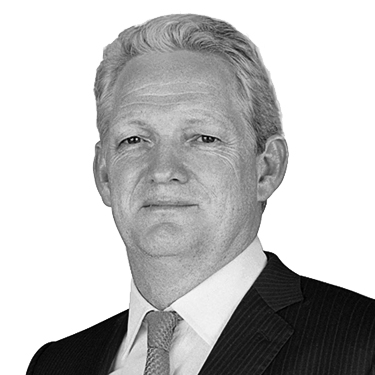It was reported earlier this week on this blog and the TerrorFinance Blog that Richard Haythornthwaite, the chairman of Mastercard, has been implicated in the money laundering scheme involving Prince Turki Al-Saud's Petrosaudi. As reported on the Terror Finance Blog, UK regulators are trying hard to look away, in what appears to be an attempt to save Prince Turki.
Meanwhile, Haythornthwaite's Petrosaudi appears to have further implicated itself in the matter by issuing a letter explicitly confirming its ownership of a company named Good Star Ltd,which is an integral part of the theft and money laundering allegations.

Click to Enlarge
Clare Rewcastle-Brown's Sarawak Report has provided evidence to show that in this letter Haythornthwaite's Petrosaudi has made a claim that is false, and designed to conceal the involvement of the Malaysian businessman Jho Low.
The letter is also contradicted by this commission agreement between Good Star and Tarek Obaid, PetroSaudi's CEO ,published by Sarawak Report, where Obaid is promised a commission for directing investments to Malaysia.

Clearly, Petrosaudi has no interest in paying its CEO a commission for directing investment into Malaysia.
As reported earlier (see story below), Haythornthwaite has denied if not attempted to distance himself from Petrosaudi, at least to Sarawak Report. As shown, that attempt was curious given that his PetroSaudi involvement is disclosed in the Network Rail Infrastructure Limited 2012 Annual Report. Now it can be shown that it is also disclosed in a Mastercard SEC disclosure.
The acronym PSI UK Ltd has been used instead of the full form , PetroSaudi International (UK) Ltd, as is the case in the Network Rail annual report.

Mr. Haythornthwaite is Non-Executive Chairman of Centrica PLC, a position he has held since January 2014. He is Chairman of the Operating Businesses of PSI UK Ltd and Chair of the World Wide Web Foundation. From 2006 until 2008, Mr. Haythornthwaite was a partner of Star Capital Partners Limited. From 2001 to 2005, Mr. Haythornthwaite served as Chief Executive Officer and Director for Invensys plc and, from 1997 to 2001, he served as Chief Executive, Europe and Asia and then as Group Chief Executive for Blue Circle Industries plc (acquired by Lafarge SA in 2001). His prior positions included serving as a Director of Premier Oil plc, President of BP Venezuela, and General Manager, Magnus Oilfield, BP Exploration. Mr. Haythornthwaite is Chairman of Southbank Centre Board. Within the last five years, he also served as Non-Executive Chairman of Network Rail and as a director of Land Securities Group plc
The 1 MDB issue has now spread toa number of jurisdictions, given that there have been
questionable transactions involving 1 MDB and PetroSaudi in the UK, Malaysia , the Cayman Islands, Hong Kong, Australia and Singapore. Subsequently there are investigations under way in a number of jurisdictions, which directly or indirectly concern these transactions.
In the latest of these the Federal Court Of Australia has ordered the winding up of fund manager reported to have been entrusted with some USD 2 billion of 1 MDB money,being the proceeds of some business dealings with PetroSaudi.
This cannot be a good look for any company in the business of providing transaction services, let alone one with the worldwide reach of Mastercard. The company needs to provide shareholders and the public an explanation ,quickly.
END
First published at Terror Finance Blog